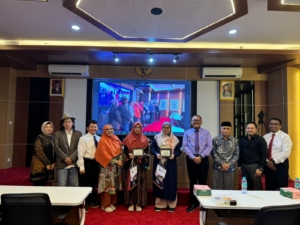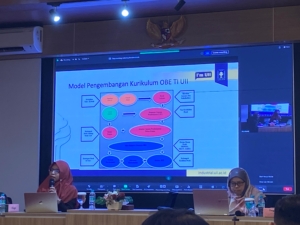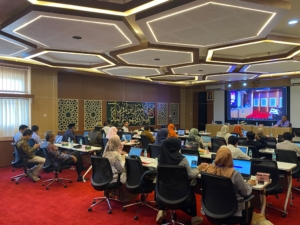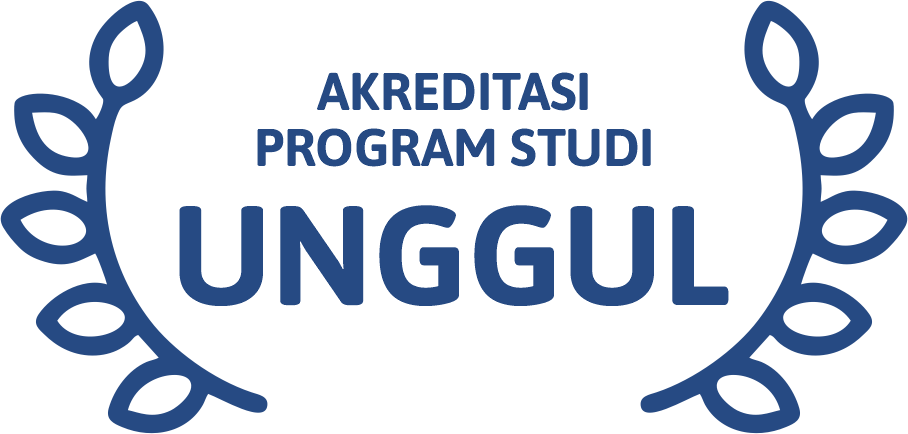Improving Academic Quality, Faculty of Law UII Holds Workshop on Scoring Assessment System Based on CPL and CPMK

The Undergraduate Study Program in Law, Faculty of Law, Universitas Islam Indonesia (FH UII) initiated a workshop on “Preparing an Assessment System Based on CPL and CPMK FH UII” on Tuesday (14/05) in the 4th Floor Mini Auditorium, Faculty of Law Building, Integrated Campus UII. The agenda was attended directly by all leadership lecturers and management lecturers of departments and study programs within the Faculty of Law UII. This event presented two presenters, namely Annisa Uswatun Khasanah, S.T., M.Sc., a lecturer at the Industrial Engineering Study Program, and Any Juliani, S.T., M.Sc. (Res. Eng.), Ph.D., a lecturer in the Environmental Engineering Study Program.
The Study Program in Law carried out this workshop to introduce information systems related to the curriculum, such as CPL (Graduate Learning Outcomes), CPMK (Course Learning Outcomes), course structure, syllabi, and RPS (Course Specification), where the system has been actualized and well formulated by the Environmental Engineering Study Program and the Industrial Engineering Study Program.

In his remarks, the Head of Undergraduate Study Program in Law, Faculty of Law, Universitas Islam Indonesia, Dodik Setiawan Nur Heriyanto, S.H., M.H., LL.M., Ph.D., explained that the assessment should be based on CPL and CPMK, In contrast, implementation at FH UII is still based on the mid-semester examination (UTS), final semester examination (UAS), and assignments. “The urgency of this workshop is due to the demands for accreditation; we were asked to evaluate the achievement of the CPL, which has been determined in the curriculum,” he concluded.
In her presentation, Annisa revealed that the level of lecturer participation in filling in CPMK and CPL achievements in the study program system is a big challenge. “Of course, all lecturers must be willing to fill in this to ensure the continuity of the learning quality system. “Every week or once a month, we hold a study program meeting where each lecturer is required to present the CPL and CPMK to provide feedback on course deficiencies so that they can be improved together,” she explained.

Furthermore, Any Juliani revealed that the focus of measuring CPL and CPMK is that apart from students having to pass according to the CPL we produce, there must also be continuous improvement. “We look for the root cause of the problem of CPL, which is difficult to achieve, then we evaluate it through RPS evaluation meetings at the end of each academic year to find out what the causes are that are difficult to achieve and what recommendations for improvement are made,” explained the Head of the Undergraduate Environmental Engineering Study Program.
In the future, Dodik hopes that developing the infrastructure for the CPL and CPMK assessment filling system can be realized immediately to streamline the accreditation and assessment process for lecturers at Faculty of Law, Universitas Islam Indonesia.







